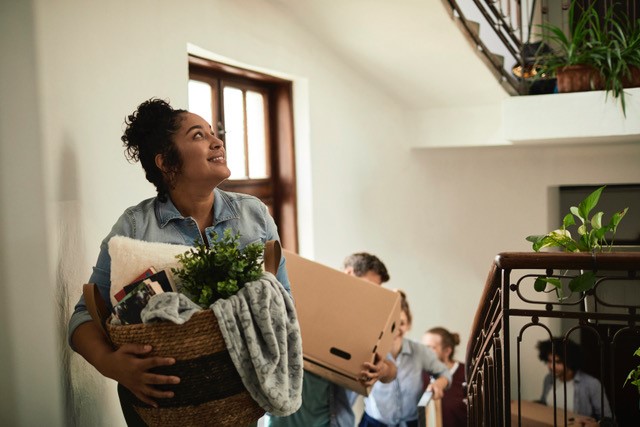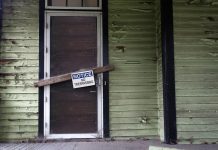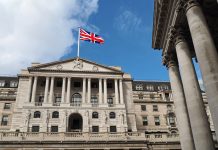Repurposing could be the answer to the social and affordable housing shortage – but how can we manage a vacant property until that happens? Stuart Woolgar, CEO of Global Guardians Management Ltd, explores
Will life ever return to where it was at the start of 2020? Many doubt it. Shopping habits have changed, working patterns altered and one of the main casualties has been the UK’s real estate sector. For months on end, retail parks and high streets have been turned into deserts, bereft of the buzz of people and commercial and social activity. Offices have been abandoned or leases not renewed as working-from-home, either part or full-time, has become the new norm and less desk space is now required by many firms committed to remote working permanently by some staff.
Now, in the summer of 2021, as our towns gradually re-open and the population ventures out once more, the casualties of the past year are becoming apparent. Familiar brands have shut their doors permanently. Others are struggling with branches closing and the business going online. Small, independent businesses – coffee shops, bars and restaurants – all retail units in secondary locations which depend on the daily flow of office workers to utilise their services, have been unable to survive without regular customers in enough numbers. With no trade, they cannot pay their rent and normal outgoings, and despite Government subsidies, many are still too deep in debt to recover. And unemployment everywhere is starting to climb.
At the start of 2021, it was estimated that some 50% of retail rents from 2020 remained unpaid and the UK’s high streets lost more than 17,500 chain store outlets with an average daily closure of 48 shops, restaurants and other leisure and hospitality venues. The result? Shuttered shops, empty office buildings, ‘to let’ and ‘for sale’ boards everywhere.
The big question for the public sector and the OPE objective is, how will all that impact on the aim of making our publicly owned real estate more streamlined, effective, economic and useful? Unfortunately, there is now a vast amount of vacant commercial property available to compete with those buildings vacated by local councils or Whitehall. And now, major property companies and developers are reeling. Large numbers of them have posted losses in their latest annual reports, and with the UK economy now in huge debt, both large and small property investors are hesitant to dip their toes in the water until the green shoots of recovery start to appear.
No one knows if we will fall into a recession once the euphoria of the end of lockdown has passed and we venture into the winter months again, or indeed if Covid mutates and causes further problems with yet more variants.
But the Pandemic and lockdown have had other repercussions apart from commercial ones. The social impact has been dire. Not just the fatalities, and the impact on people’s physical and mental health and wellbeing; many people have lost their homes along with their employment and the resulting need for affordable and social housing is now more critical than ever.
Repurposing is the new buzzword
And it is the most obvious solution to a housing shortage and an over-supply of commercial property. However, converting a former council-owned office building into flats, or re-developing a run-down former industrial estate, all takes finance. Councils across the country are in serious debt and developers struggling to re-finance the loans on their existing portfolios. So, while waiting to come out of this latest economic downturn, what to do with our languishing vacant property?
Empty Property Security
Guardianship living is the most obvious answer as everyone in the equation benefits.
Vacant property is an invitation to all sorts of trouble. There’s trespass, vandalism, arson, theft, fly tipping and squatting, to name a few problems. Any unoccupied building, even if apparently secured and shuttered, is an invitation to break in and steal the lead from the roof, or copper piping from inside as scrap metal values soar. Unofficial dumping of rubbish is a blight everywhere, especially on unoccupied premises. With the increase in the numbers of homeless, trespass and squatting is a further issue. The problem list is endless.
However, the simple solution to all the above for any sort of landlord or property owner, while they wait to sell or repurpose their empty buildings, or wait for finance, planning and other consents to go through, is to put in property guardians. Overnight, the place becomes secure, without the need for screens, shutters and all the other security paraphernalia that simply advertises the fact that the property is vacant. What is more, when there are people in situ, problems such as leaks or cracked windows are soon spotted and dealt with.
It’s a win win solution all round. Property owners simply hand over the building to the guardian company and its maintenance and security then becomes their responsibility. In turn, they provide safe, secure and affordable accommodation to key workers or other professionals who would otherwise struggle to pay rents at the levels demanded to be close to city centres where they need to work. If the building has been non-residential, the guardian company simply installs the necessary kitchen and bathroom facilities and sections off a suitable area to make a comfortable, if temporary unit for the guardians to live and sleep in. When the property owner wants the premises back, this isn’t a problem as the guardians aren’t tenants, merely licensees, and are there on the understanding they are only temporary occupants.
The social benefits of using a property guardian scheme cannot be overstated, especially in these changing and uncertain times. For public sector property owners, they can be reassured they are doing the socially responsible thing by maximising the use of their otherwise unwanted and vacant property assets, instead of leaving them to deteriorate and become an invitation to criminal and anti-social behaviour while the post Covid world tries to put itself to rights.
*Please note: This is a commercial profile
© 2019. This work is licensed under CC-BY-NC-ND.
Contributor Details
Editor's Recommended Articles
-
Must Read >> Is your vacant property being secured the best way?














